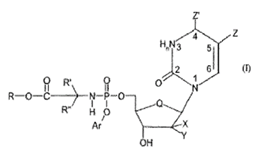Interim Remedies: Sovereign Dimensional Survey Ltd
Despite 300 years of political union and until recently a common legislature there remain striking differences between the laws of Scotland and those of the rest of the UK. Occasionally these come to light. A case that highlights them dramatically came before M Wise QC sitting as a temporary (presumably deputy) judge on Friday.
This was the sort of case that still comes before chancery interim applications judges from time to time and before Universal Thermosensors Ltd v Hibben [1992] 1 WLR 840 was commonplace. A high tech company engaged in dimensional control and laser scanning services to the oil and gas industries suspected that one of its former directors had made off with some of its trade secrets. It took steps to recover them.
Had the case happened in England the employer might have applied for a search order under CPR Part 25. In Scotland the equivalent procedure appears to be to petition for the appointment of a silk as a "Commissioner" to search for and take all other steps necessary to take possession of the documents and property listed in the petition. The search was to take place at the director's house. The director was also ordered to inform the Commissioner immediately of the whereabouts of the scheduled documents and property and to provide the Commissioner with a list of the names and addresses of everyone to whom the respondent, his servants or agents or anyone on his behalf have given any of the scheduled documents and property.
The search duly place and the director was asked about a laptop computer which had gone missing. The petitioner was not satisfied with the answers that were given to the commissioner and it applied for the director's committal for contempt. The director replied with a cross-application to strike out the committal application on the grounds of irrelevance and lack of specification (roughly equivalent to failure to state a case to answer). In the alternative, he alleged that his conversation with the Commissioner was inadmissible because it took place in the course of settlement negotiations. In support of his argument on privilege, the petitioner relied on Rush & Tompkins Ltd v Greater London Council [1988] UKHL 7 and Unilever plc v Proctor & Gamble [2000] 1 W.L.R. 243.
The interesting part of the judgment is the review of the English and Scottish authorities on the "without prejudice" privilege and the judge's conclusion that:
The distinction between the two approaches deduced by the judge is probably exaggerated. The English court will look at content. Unilever was a threats action and contradicted over 120 years conventional wisdom that threats made in settlement negotiations are still actionable. It was followed by Kooltrade v. XTS, [2001] FSR 158 (a case in which I appeared) where the words "without prejudice" were disregarded.
This was the sort of case that still comes before chancery interim applications judges from time to time and before Universal Thermosensors Ltd v Hibben [1992] 1 WLR 840 was commonplace. A high tech company engaged in dimensional control and laser scanning services to the oil and gas industries suspected that one of its former directors had made off with some of its trade secrets. It took steps to recover them.
Had the case happened in England the employer might have applied for a search order under CPR Part 25. In Scotland the equivalent procedure appears to be to petition for the appointment of a silk as a "Commissioner" to search for and take all other steps necessary to take possession of the documents and property listed in the petition. The search was to take place at the director's house. The director was also ordered to inform the Commissioner immediately of the whereabouts of the scheduled documents and property and to provide the Commissioner with a list of the names and addresses of everyone to whom the respondent, his servants or agents or anyone on his behalf have given any of the scheduled documents and property.
The search duly place and the director was asked about a laptop computer which had gone missing. The petitioner was not satisfied with the answers that were given to the commissioner and it applied for the director's committal for contempt. The director replied with a cross-application to strike out the committal application on the grounds of irrelevance and lack of specification (roughly equivalent to failure to state a case to answer). In the alternative, he alleged that his conversation with the Commissioner was inadmissible because it took place in the course of settlement negotiations. In support of his argument on privilege, the petitioner relied on Rush & Tompkins Ltd v Greater London Council [1988] UKHL 7 and Unilever plc v Proctor & Gamble [2000] 1 W.L.R. 243.
The interesting part of the judgment is the review of the English and Scottish authorities on the "without prejudice" privilege and the judge's conclusion that:
"The Scottish and English authorities show two different approaches to this. The English approach is context based and the Scottish approach is content based. In England, protection is given to all privileged communications. In Scotland, even if something bears to be "without prejudice", the court will still look at it if it constitutes an admission of fact."
The distinction between the two approaches deduced by the judge is probably exaggerated. The English court will look at content. Unilever was a threats action and contradicted over 120 years conventional wisdom that threats made in settlement negotiations are still actionable. It was followed by Kooltrade v. XTS, [2001] FSR 158 (a case in which I appeared) where the words "without prejudice" were disregarded.

Comments